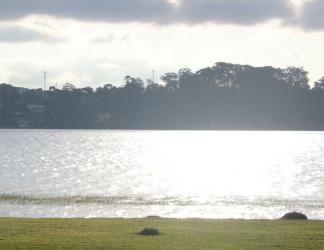10-02-2015
Rough weather ahead
From The Economist
While Dilma Rousseff prepared to be sworn in for a second term as Brazil’s president on January 1st, the skies over the capital, Brasília, were forecast to be clear. But the outlook for the next four years is gloomy. Her daunting to-do list includes repairing ties with America, damaged by the revelation in 2013 that its spies had tapped her phone calls. Deforestation in the Amazon region is rising after a decade of decline, and the worst drought on record threatens to bring energy and water rationing to the industrial south-east. Preparations for the 2016 Olympics in Rio de Janeiro risk a reprise of the deadline- and budget-busting run-up to the 2014 football World Cup, which Brazil also hosted. Ms Rousseff’s left-wing Workers’ Party (PT) and its allies are embroiled in a corruption scandal involving Petrobras, the state-controlled oil giant, though so far she is personally untainted (see article).
But it is the economy where the storm-clouds are stacked highest. The end of the commodity supercycle means falling prices for Brazilian exports of soyabeans, iron ore and, most recently, oil. And the policies Ms Rousseff pursued during her first term have proved disastrous. A combination of macroeconomic laxity and microeconomic meddling, intended to boost growth, merely undermined public finances and her credibility. GDP rose by just 6.7% during her first four years. Her biddable Central Bank governor, Alexandre Tombini, and finance minister, Guido Mantega, cut interest rates and let rip on public spending even as inflation rose and tax receipts slowed. If her second term is to be any better, she will need to undo much of what she did in the first.
Even hitting that lower target will mean cutting public investment and raising taxes—thereby making a return to growth even harder to achieve in the short term. Brazil’s tax burden, already at 36% of GDP, is far higher than that of other middle-income countries. And its big construction firms, which are alleged to have bribed Petrobras for contracts, are likely to get caught up in legal proceedings and thus barred from public work. That puts at risk planned infrastructure projects budgeted at 870 billion reais ($325 billion), including some needed for the Olympics. After a 7.2% drop in investment in 2014, Itaú, a bank, expects investment to be flat in 2015. Analysts have duly slashed growth forecasts for 2015 from 2.5% a year ago to 0.8% or less. Some predict an outright recession.
Austerity will also hit her popularity in the country at large. Petrol prices have already gone up; electricity and public transport are next. The most recent plan to raise bus fares in big cities, in June 2013, sparked the biggest protests in a generation, and was quickly dropped. Any fiscal and monetary adjustment big enough to restore public finances is sure to push up the jobless rate, which is now close to a record low of around 5%.
